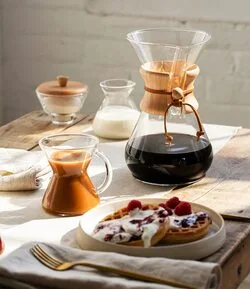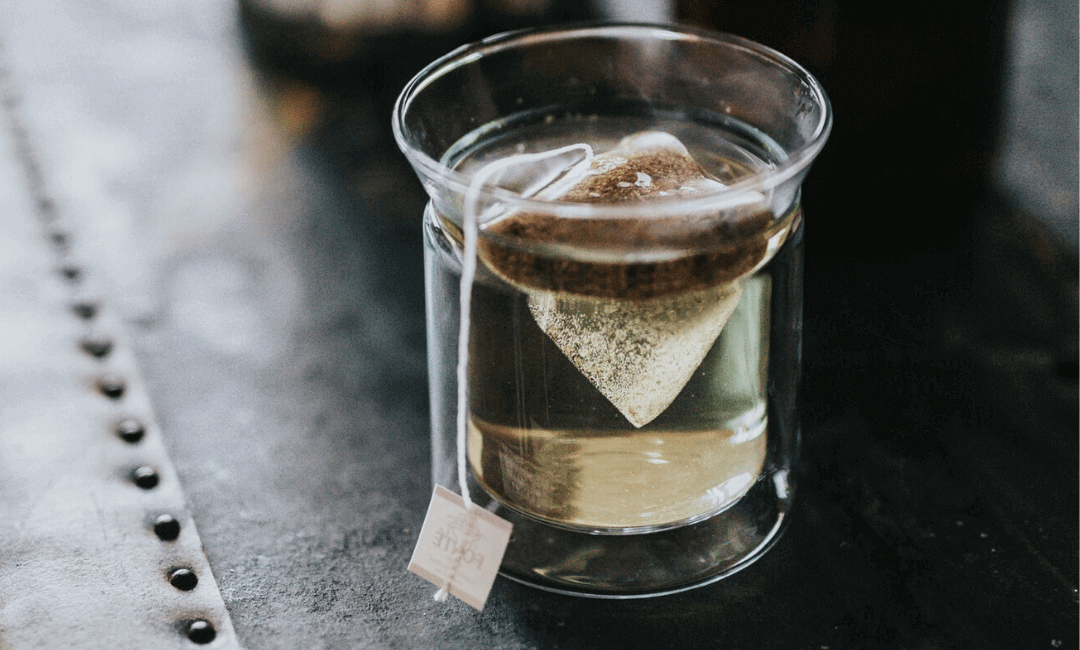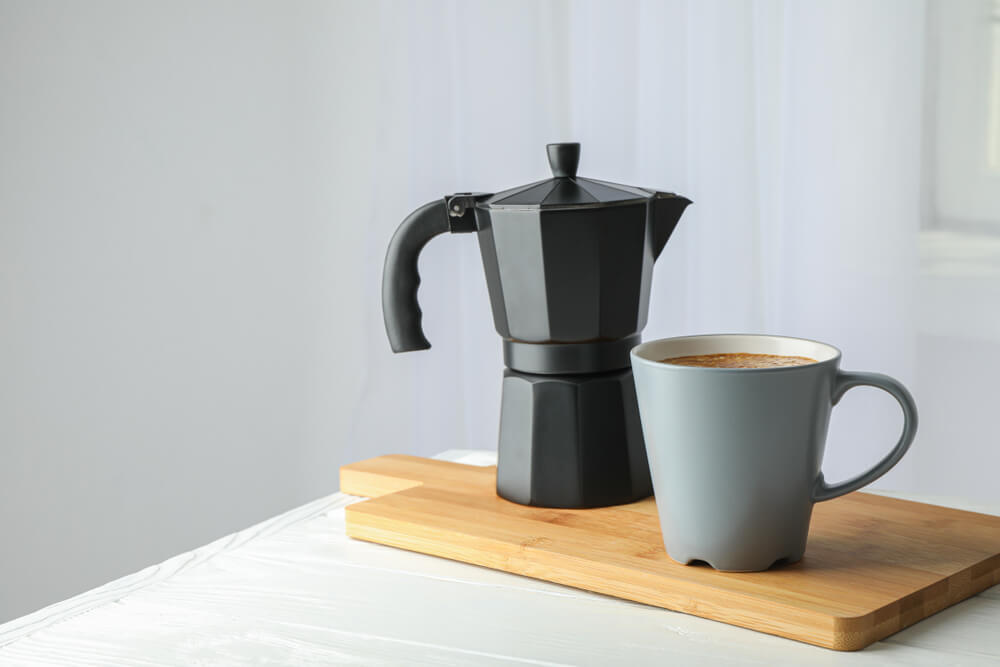Creating a Sustainable Kitchen: The Best Plastic-free, Non-Toxic Small Kitchen Appliances

In the fast-paced world of modern living, our kitchens have become bustling hubs where convenience often takes precedence over sustainability. However, making conscious choices about the appliances and products we use in our kitchens can have a significant impact on our health and the environment. This article explores the realm of non toxic, plastic-free kitchen products, with a focus on the best eco-friendly appliances and accessories.
1. Choosing the Right Appliances for a Sustainable Kitchen
In the quest for a plastic-free kitchen, the appliances we choose play a crucial role. Many conventional small kitchen appliances like a kettle, coffee maker are made of plastic and other components that can leach harmful chemicals into our food and contribute to the global plastic pollution crisis. Opting for non-toxic and plastic-free kitchen appliances that last a lifetime is not just an eco-friendly choice but also a healthier one for you and your family.
When you think about common kitchen appliances like food processors, blenders, and coffee makers, consider their materials. Stainless steel, glass, and ceramic are excellent alternatives to traditional plastic components. These materials not only reduce the risk of toxic chemicals leaching into your food or drinks but are also more durable and easier to recycle.
2. Avoid Toxic Materials in Contact with Hot Food and Liquids
-
Plastic, even BPA Free Plastic
We have written extensively about phthalates, BPA, BPA-free plastic claims , the impact on our health and why is important to avoid any plasticizers in contact with hot food and drinks.
On the other hand, common cheap kitchen appliances have a huge impact on the environment, as they break quickly and are unrepairable due to their cheap components. Have you noticed that most products have only 1 year of warranty? This is the result of our linear economy model of take – make – waste, as opposed to the circular economy.
Plastic-free cooking involves a conscious effort to minimize or eliminate the use of plastic in the kitchen to reduce our exposure to microplastics. This goes beyond just choosing the right appliances; it extends to food storage, cooking utensils, and even the packaging of ingredients (if possible). Making the switch to plastic-free cooking can significantly reduce your carbon footprint (you buy better, and you buy only once!) and your exposure to toxic materials.
-
Aluminum
Aluminum is another material to avoid prolonged use. The substance may be leaching from utensils with long-term use, which has been associated with certain clinical conditions such as anemia, dementia, and osteo-malacia. Some studies suggest that cooking in utensils or aluminum foils is safe, however, others suggest that it may lead to toxic levels of aluminum in the body, depending on many factors such as pH, temperature, and the cooking medium.
-
Non-stick Coatings (PFAS / PFOA / PFTE / GenX / “Ceramic” Coatings)
PFAS / PFOA / PFTE / GenX. You see these acronyms every day on the marketing claims nicely highlighted on product packaging, often as claims that products are free of these substances. However, while manufacturers might have removed those chemicals, they had to use others to create that non-stick coating we’re all used to. Non-stick pans and appliances coated with PTFE, and other coatings are convenient, but unnecessary, and contribute to the serious problem of PFAS pollution. Ceramic coated pans are not much better either, as their non-stick coating is not pure ceramic and it wears out easily, usually within one year. Stay away from non-stick coatings!
-
Silicone
Please don’t be fooled by silicone kitchen products for your appliances like silicone airfryer basket liners, or silicone bakeware, and bake trays. Silicone is not an inert material, it is a porous material, often filled with plasticizers, that has been scientifically proven to leach siloxanes, phthalates, and other well known endocrine disrupting chemicals into food when heated at high temperatures. Stay away from silicone in contact with heat!
3. Best Non-Toxic Small Kitchen Appliances and Eco-Friendly Kitchen Accessories
The following list will guide you on how to choose non-toxic kitchen appliances, based on detailed articles we’ve previously compiled.
This post contains affiliate links, which means we may receive a small commission, at no cost to you, if you make a purchase through a link. This helps us continue the very hard work we put into researching products and solutions. It took us weeks to compile this overview.
4. Plastic Free Electric Kettle and Stove Kettle

A completely plastic-free electric kettle doesn’t exist. There is always plastic in electric products, so we have put together a list of the products where plastic doesn’t come in contact with the hot water. If you’re looking for a 100% plastic free kettle, opt for a stainless steel stove top kettle. To lower your microplastic exposure, please remember to use loose-leaf tea or plastic-free tea bags.
Please open the article here below.
Related: The Benefits of Switching to a Plastic Free Electric Kettle: 13 Recommended Products To Consider
5. Plastic Free Coffee Machine and Coffee Maker

Electric coffee machines or percolators that are plastic-free do not exist, due to the plastic components in the electronic parts, cables, and tubes where the water flows. If you’re looking for a 100% plastic free coffee maker, where plastic doesn’t come in contact with the boiling water, opt for a manual or stove top coffee maker.
When it comes to coffee makers, the choice of materials matters. Opt for coffee makers with stainless steel or glass components instead of those predominantly made from plastic. This not only ensures a better taste for your coffee at home but also reduces your exposure to potentially harmful substances. Where you like espresso, a cappuccino, latte macchiato etc. you deserve a healthy cup!
Please open the article here below.
Related: The 17 Best Plastic Free Coffee Makers: Enjoy Delicious, Non-Toxic Coffee Every Morning
6. Plastic-free Food Processor and (Immersion) Blender

Food processors and blenders are indispensable in any kitchen, but not all of them are created equal when it comes to sustainability. Eco-friendly options are designed with materials that are not only durable but also environmentally conscious.
Look for food processors, blenders, stand mixers with stainless steel blades and borosilicate glass, or stainless steel jugs. Stainless steel is a durable and non-toxic material, ensuring that no harmful substances leach into your food during processing. Additionally, many brands now offer alternatives with glass bowls, reducing the reliance on plastic components, like plastic jugs that absorb food colors and odors over time. Please open the article here below.
Related: Why is a Plastic Free Blender Better for Your Health?
7. Air Fryer / Toaster Oven / Slow Cooker
As we strive for a more sustainable kitchen, small appliances like air fryers, small electric ovens, and slow cokkers shouldn’t be overlooked. Air fryers, with their ability to cook with minimal oil, contribute to healthier cooking practices. Look for stainless steel air fryers, ovens, slow cookers with non-toxic coatings, even though they state PFAS and PFOA-free, and minimal plastic parts to enhance their eco-friendly profile. If possible choose a product that is mainly made with high food grade stainless, including the air fryer baskets, rotating drums, toasting / warming rack, skewer rack, bread rack, rotisserie part accessories etc. Forget the non-stick accessories and those made of silicone, like silicone mats. Be prepared to spend a bit more time to clean those parts to enhance your health!
We’ll try to find and test some products for you and we’ll update this article in the near future.
8. Stainless Steel Food Dehydrators

Beyond the basic kitchen appliances, there are additional accessories that can contribute to a more sustainable kitchen. Dehydrators, for example, are an eco-friendly way to preserve fruits, vegetables, herbs, seeds, jerky etc. and create healthy snacks for the whole family, as drying preserves important nutrients that cooking often destroys, concentrating your foods’ natural flavor, sweetness, and aroma. They don’t require electricity for storage, help reduce packaging waste from store-bought food, and save space in the pantry.
Dehydrating can allow you to take advantage of purchasing food in peak season or bulk, to be stored for later use in a more space-efficient manner than canning or freezing.
A quality stainless steel food dehydrator brand that we recommend is Excalibur Dehydrators. Since 1973, this company has designed and manufactured dehydrators in Sacramento, California USA. Setting the industry standard for design excellence for over 40 years. All products are made of quality food grade stainless steel even the trays. Don’t buy plastic dehydrators, support a US made brand!
- Browse the Amazon USA Store – UK – Canada
- Visit Excalibur Dehydrators Australia
9. Electric Stainless Steel Juicer

When choosing an electric juicer machine, please opt for a high-quality stainless steel juicer that will last a lifetime.
We’d like to recommend Angel Juicer as it is actually the world’s first 100% stainless steel cold press juicer, and its unique twin gear design means it has yields of up to 50% more than other juicers. The major benefit of using a stainless steel juicer is its quality and durability. With no plastic parts that are prone to breakage, the Angel Juicer truly will stand the test of time.
10. Non-toxic Cookware: A Step Towards Health and Sustainability

Making sustainable choices in the kitchen extends beyond appliances to include reusable kitchen utensils and cookware. Traditional non-stick cookware often contains harmful chemicals, such as PFAS coatings, or perfluorooctanoic acid (PFOA), which can be released into the air and food during cooking. Ceramic coated pans are not much better either, as their non-stick coating is not pure ceramic. Instead, choose cookware made of durable stainless steel, carbon steel, cast iron, pure ceramic, etc. to avoid potential hazards.
We have compiled some detailed research about what truly non-toxic cookware brands are available on the market today. Please open the article here below.
Related: 12 Truly Non-Toxic Cookware Brands for a Healthy Kitchen
11. Toxic Free Kitchenware & Plastic-Free Kitchen Utensils
Investing in plastic free kitchen utensils made from stainless steel (dishwasher safe) or natural, untreated wood / bamboo eliminates the need for disposable plastic alternatives. These materials are not only more durable but also safer for both you and the environment. Plastic utensils like soup ladles, spatulas, tongs, etc. shouldn’t be in your kitchen, particularly if these come in contact with heat! Please stay away from silicone kitchen products that are used in contact with heat, for the reasons outlined above.
- Browse stainless steel kitchen utensils on Amazon USA – Canada – UK – Australia
- Browse wooden kitchen utensils on Amazon USA – Canada – UK – Australia
12. Non-Toxic Food Storage: Keeping it Fresh without Plastic
In this section, we’ll delve into the world of non-toxic food storage, exploring alternatives that keep your food fresh without relying on harmful plastics.
Choosing the right food storage containers is a crucial aspect of maintaining a sustainable kitchen. Traditional plastic containers can leach harmful chemicals into food, especially when exposed to heat or acidic ingredients. To avoid this, consider alternatives like glass jars or stainless steel containers.
Glass jars are an excellent choice for storing both dry and wet ingredients. They are non-toxic, easy to clean, and don’t retain odors or flavors. You can reuse glass jars from pickles, coffee, etc. and repurpose them for a green kitchen without having to spend further money. Alternatively, you can buy some with bamboo lids, and some come with a plastic lid for airtightness. Remember: avoid plastic when microwaving.
Stainless steel food containers, on the other hand, are very durable and resistant to corrosion, providing a safe and eco-friendly option for food storage, particularly when on the go.
In addition to choosing the right materials, consider investing in airtight containers to extend the shelf life of your ingredients without resorting to plastic. This not only reduces food waste but also minimizes the need for single-use plastic packaging.
Last but not least, look for reusable food storage alternatives, such as DIY beeswax wraps instead of plastic wrap and reusable food storage bags instead of disposable plastic bags.
- Browse glass food storage containers on Amazon USA – Canada – UK – Australia
- Browse stainless steel food storage containers on Amazon USA – Canada – UK – Australia
- Browse beeswax wraps on Amazon USA – Canada – UK – Australia
Related: Is it Harmful to Store Food in Plastic Containers?
13. Reducing Landfill Impact: Compost Bins and Sustainable Kitchen Practices

Though not a kitchen appliance, the article won’t be complete without mentioning how important kitchen compost bins are for the environment, so that your food scraps are not going to landfill releasing methane, and composting helps in reducing kitchen waste and microplastics. By incorporating sustainable practices into daily cooking routines, you are getting closer to zero-waste cooking!
- Browse kitchen countertop compost bins on Amazon USA – Canada – UK – Australia
14. Conclusion: Forget the Non-stick, Silicone etc. and Pay Attention to What You Buy if you want a Non-toxic Kitchen!
We hope that this guide has helped you identify non-toxic materials in kitchen products. Certifications and labels can guide consumers to make informed choices as well.
Tip: replace old appliances only when the old ones are broken, make a list of what you need replacing, and try to buy high-quality products that have multiple functions: i.e. a good quality air-fryer can be used as well as an oven, and as a toaster.
Ultimately making good choices depends also on your level of awareness. We are here to help make your kitchen more sustainable and healthier for you and your family.
Comments
Annette
July 21, 2024 at 11:55 pmHi, I am looking for a toxic free food processor and I am struggling to find one. Can you advise of any please? I live in the UK.
Thank you for your time.
Kind regards
Annette
Reena
July 28, 2024 at 8:34 amI am looking for a no coating toastie maker. Please advise.
Kim
August 9, 2024 at 2:43 pmAre there any stainless steel juicers that ship to America? And will the air fryer portion be ready in time for Black Friday? I have no appliances but plan to get a couple around this time. Also, what about lead with stainless steel items?
Kiri S.
November 5, 2024 at 2:14 pmHi there, I’m struggling to find a plastic-free / silicone-free bench top oven (similar to an air fryer). Do you know of any brands that offer this? Thanks very much.
Nikki
November 15, 2024 at 8:31 amI am trying to find the best non toxic/low tox eco friendly options to replace our electric oven. Can you recommend any brands that are budget friendly pls. I live in Australia.
susan webb
March 28, 2025 at 2:20 pmHi,
I’m trying to find a non toxic food processor or large chopper in Australia, would you know of any please?
Also, not appliance related but you might know the answer, is baking paper safe to use?
Thanks, Susan


Kayleigh
June 5, 2024 at 10:31 pmHi I’m looking for a non toxic vegetable chopper. Can you recommend one please? All the ones I can find are plastic!
I'm Plastic Free
June 6, 2024 at 4:55 pmHi Kayleigh,
Thanks for your question. We might add the vegetable chopper to our list. The closest we could find to being “plastic free” is this one if you are in the USA https://amzn.to/3VvVCfl or this one if you are in the UK https://amzn.to/4bIe2yW. Both are made of stainless steel and aluminium but they do have some plastic parts that push the veggies down. Otherwise if you’re in the UK I also foud this vegetable slicer made of stainless steel: https://amzn.to/3Kv8egb
I hope this might help you!
If you make a purchase you’re helping me continue the research for non-toxic & plastic-free products.
Many thanks
Kind regards,
Simona